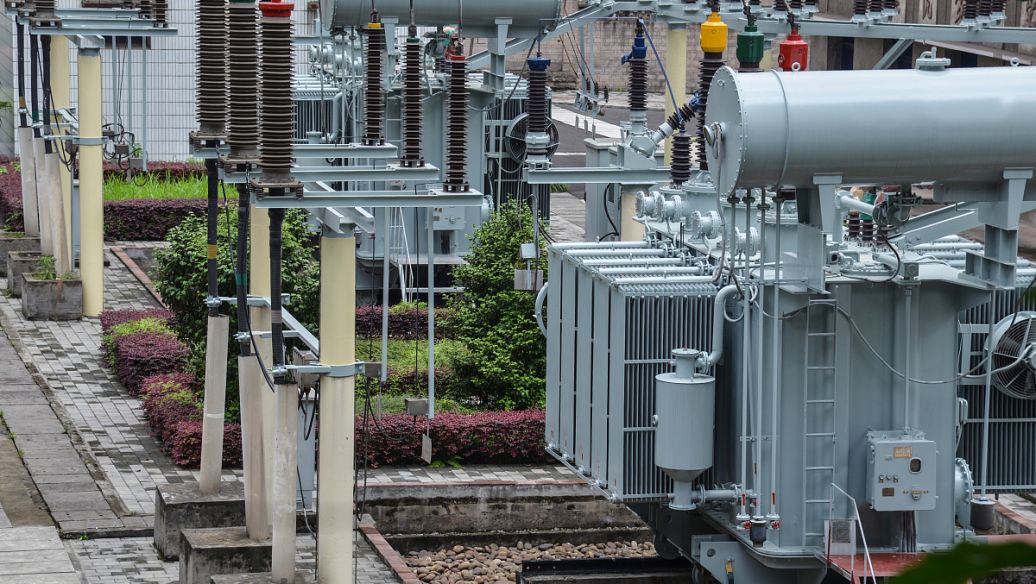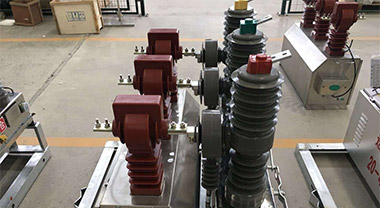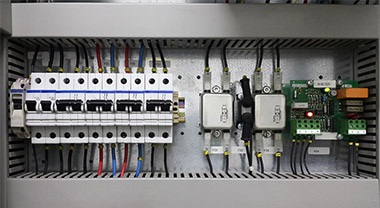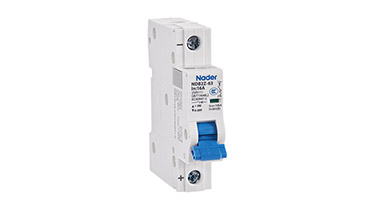What are the reasons for the explosion and fire of the high-voltage circuit breaker?
By:Nader Updated:August 12,2020 11:54AM

What are the reasons for the explosion and fire of the high-voltage circuit breaker?
- Circuit capacity does not meet the requirements. Due to ill-designed, breaking capacity circuit breaker is too small; increase due to the development of the grid, the system breaking capacity, breaking capacity circuit breaker can not meet the original requirements; breaker poor manufacturing quality, brand-name products can not meet the required parameters . For the above reason, when a short circuit occurs, the circuit breaker can not cut off the short-circuit current, the circuit breaker causing explosions and fire.
- Maintenance quality does not meet requirements. The access points arbitrarily changed, closing speed, free to change the circuit breaker arcing distance (the distance between the interrupter contacts to the hydrostatic), will have reduced breaking capacity circuit breaker.
- Improper operation and maintenance operation. After the circuit breaker repeatedly cut off short-circuit current, timely arrangements for maintenance is not required; automatically trip the circuit breaker, operating personnel inaccurate transmission of multiple strong, many times by the circuit breaker short-circuit current impact. These are the breaker interruption capability is reduced, and the resulting circuit breaker burst into flames.
- Running oil level is too high. Oil breaker in the oil level is too high, to make the circuit breaker more reduced oil buffer space, when the oil is a short-circuit current breaking, due to reduced buffering space, the high-pressure cutting oil may be a mixture of arcing out of buffer space is formed injection circuit breaker, even fire; Further, since the buffer space reduction, a mixed gas of high pressure oil into the buffer space, so that increased pressure in the buffer space, if the pressure exceeds the ultimate strength of the buffer space of the container, the circuit breaker may explode .
- Running low oil level. Run oil circuit breaker oil level is too low, affecting its arc performance. When the arc is cut off, since the oil level is too low, the cooling of the arc path of the oil passage becomes shorter, the arc cooling effect of the difference, resulting in prolonged breaking arc or the arc extinguishing difficult. The result may be that the arc out of the oil into the buffer space, the oil is decomposed into the arc combustible gases mix with the air buffer space, a mixed gas under the electric arc could cause explosion; If the oil level is too low, the circuit breaker contacts may not be soaked in oil, failed to extinguish the arc when the contacts are open, which will produce fire and explosion.
- Insulating oil impurities. The large number of free oil circuit breaker oil carbonization, a large number of aging, the influx into the oil, water. Since the oily impurities, the circuit breaker internal flashover and cause an explosion.
- Hydraulic or pneumatic pressure is too low. Hydraulic oil circuit breaker operating mechanism, the gas offArc (air, of SF6) circuit breaker, since the hydraulic operating mechanism is too low, the circuit breaker, when the closing will cause slow minutes, slow closing, slow points, an arc generated between the separated contacts will slow closing off is less likely to cause blast circuit breaker; gaseous extinguishing medium when the pressure of the air circuit breaker, SF6 circuit breaker is too low, the circuit breaker arc quenching ability is reduced, or even extinguish the arc, thereby causing the circuit breaker to explode. Therefore, the hydraulic oil circuit breaker operating mechanism, the arc-extinguishing gas circuit breaker and the gas pressure are equipped with a hydraulic locking device, when the excessively reduced hydraulic, pneumatic, the circuit breaker will be locked in the original position.




